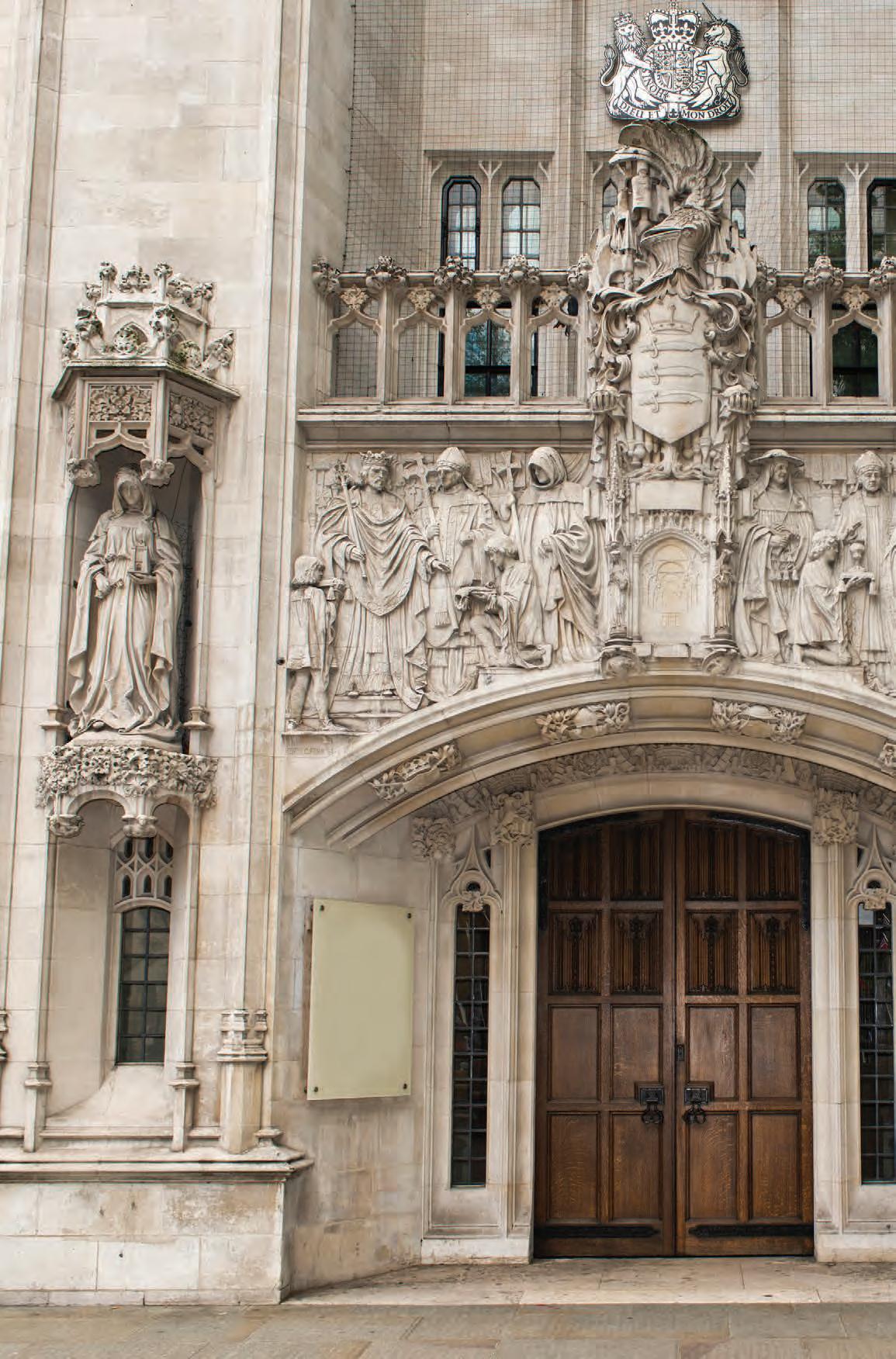
5 minute read
Interview with Charles Banner QC
• What influenced your move to
Advertisement
Keating?
As a barrister specialising principally in planning & environmental regulation, but also with a significant practice in public procurement and commercial dispute resolution in the development and infrastructure sector, I was attracted by the opportunity to join a chambers focused on that sector.
Clients and solicitors had also made clear the benefits of a ‘life cycle’ offer, servicing projects over their lifetime, from environmental and planning consenting, to public procurement, regulatory and project finance issues, to commercial disputes arising during or after the construction of the project. This is an approach that law firms have long since adopted. Combining my planning & environmental practice with Keating’s pre-existing core practice areas offered an exciting chance to match that at the Bar.
Finally, having always had an international dimension to my practice ever since undertaking a 3 month Pegasus Scholarship in Hong Kong in 2008 (including a 2 month secondment at Mayer Brown JSM’s planning and construction team), I couldn’t fail to be impressed by Keating’s market-leading international standing. • How have you found your first few months at Keating?
It has been fantastic in every respect so far. On a personal level, everyone has been incredibly welcoming and, paradoxically, the pandemic and associated restrictions have made the transition easier as I’ve got to know people incrementally, and thus in more depth, as opposed to suddenly being presented with over 60 new faces.
On a professional level, the market reaction has been even better than expected, and I have been hugely impressed by the first rate practice management and BD team. I also already feel like a fully integrated member of the public procurement team, having undertaken several webinars and other marketing events with them in the 7 months since joining chambers.
Finally, I have also been pleasantly surprised by the extent of the synergies between my practice and Keating’s core areas, having already been instructed on construction matters concerning planning-related delay, and having followed colleagues’ recent involvement in the Clin litigation, which recently reached the Court of Appeal for the second time and which also concerned significant planning issues in the context of a construction dispute.
• What has been the highlight of your career so far?
Either the HS2 litigation in the Supreme Court or the Heathrow Expansion litigation in the High Court and Court of Appeal. These have without doubt been the two biggest infrastructure projects to be considered in England in my professional lifetime, and it was a privilege to have been involved in both. I also enjoyed the multi-disciplinary nature of each case: HS2 involved a mix of planning law, environmental law, EU law and constitutional law; Heathrow involved a mix of those three fields plus some heavy competition law in which I was up against several leading specialist competition silks, which was an enjoyable challenge. A close third would be the North-South Interconnector in Northern Ireland, on which I have been involved for over 5 years. It is widely regarded as Northern Ireland’s most significant energy infrastructure project in history and the transboundary issues and the associated political and legal sensitivities have made it particularly interesting to have been involved in.
• Have We Got Planning News for You, the weekly webcast, launched last year - did you have any idea it would be such a success?
None at all! I conceived the idea having heard solicitors and other clients complain during the first lockdown about being bombarded with literally several emails a day from various organisations offering ‘partisan’ marketing webinars. It occurred to me that a joint venture with rival chambers, which whilst informative was also light hearted, would provide clients with a welcome break from this and hopefully lift spirits at the same time – and we also saw an opportunity to raise money for the NHS Clap for Carers campaign in lieu of a registration fee. But what started as something to keep people informed and entertained in the short term, as well as raising funds for a good cause, rapidly gained a life of its own – HWGPNFY has now had over 100,000 cumulative views, including over 14,000 for the episode we did on the Government’s recent proposals for reforming the planning regime (which was recommended in a tweet by the Secretary of State responsible for those proposals, Rt Hon Robert Jenrick MP) – as I write this our most recent guest was the Archbishop of Canterbury, and next up are the TV Architect George Clarke, the Deputy Mayor of London Jules Pipe, and the Minister of Planning Rt Hon Chris Pincher MP. The HWGPNFY team were thrilled to be recently nominated for the Best Use of Social Media Award for the Legal Cheek Awards 2021 – which is ironic given I had absolutely no idea what Zoom or Teams were this time last year!
• You took silk a couple of years ago, what change has that made to your practice?
In relation to domestic advocacy work it has been evolution rather than revolution, as for a few years I’d been involved in silk-level cases, but it has had a noticeable impact on my profile in the international market where the QC brand carries a particular cachet, and also in relation to advisory work where for particularly complex or high value cases clients invariably require a silk’s input. It also undoubtedly helped me secure my part-time judicial appointment as a Justice of the recently established Astana International Finance Centre Court in Nur-Sultan, Kazakhstan. That in turn has provided a wonderful opportunity to learn from the more senior judges on the court, including the Chief Justice Lord Mance (formerly Deputy President of the UK Supreme Court), with whom I attend regular judges’ meetings. • Part of your practice is focused on public procurement work and you were involved in the Faraday case, did that influence your decision to join
Keating?
Absolutely. My public procurement practice is principally focused on public works contracts and was developed out of my planning practice, given the planning related nature of the development agreements which are often the subject of difficult public procurement issues. This led to my involvement in three of the most significant public works contract cases in the last decade – Midlands Co-operative, Wylde and Faraday (by some fluke for the successful party in each) – and I was for some time keen to build on this and grow my public procurement practice further. Keating’s top drawer reputation in the field was a huge attraction and I’ve greatly enjoyed being part of the procurement team.







